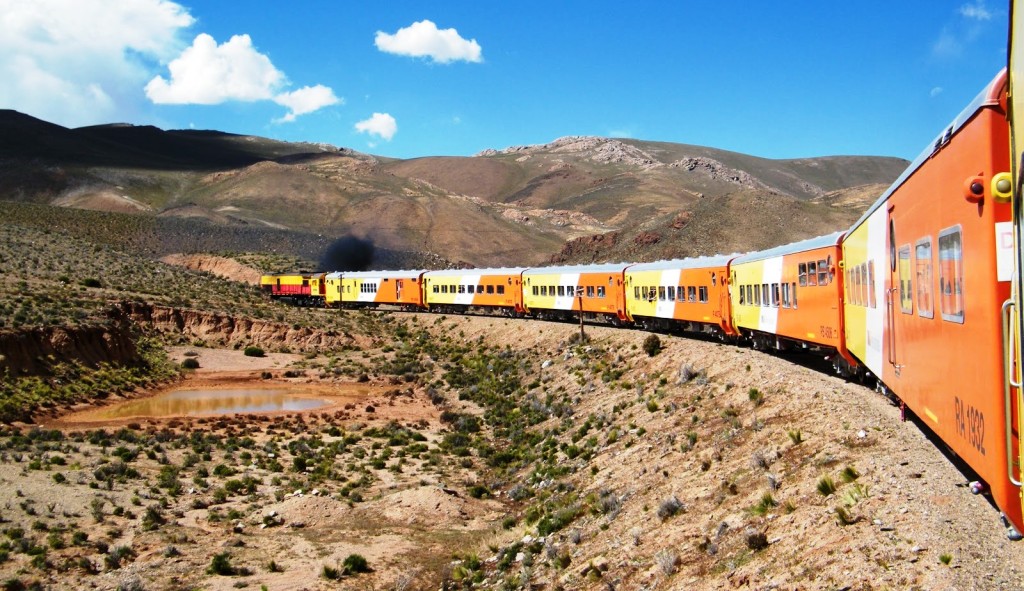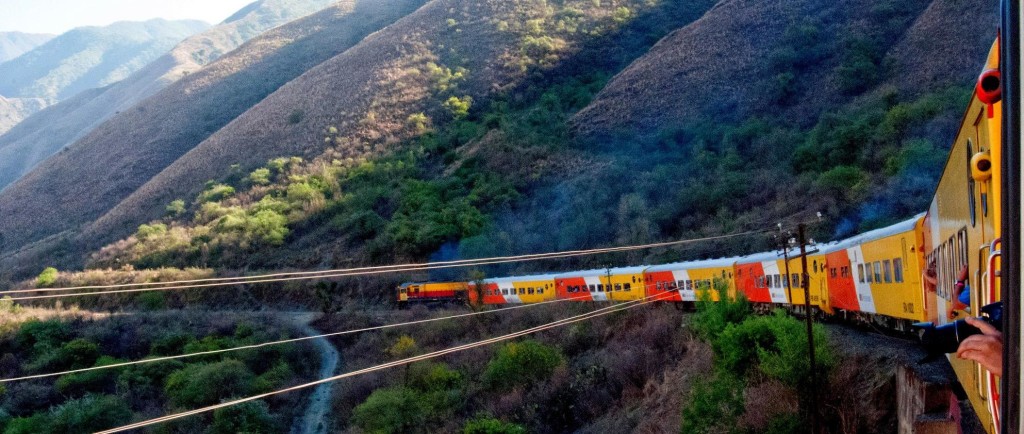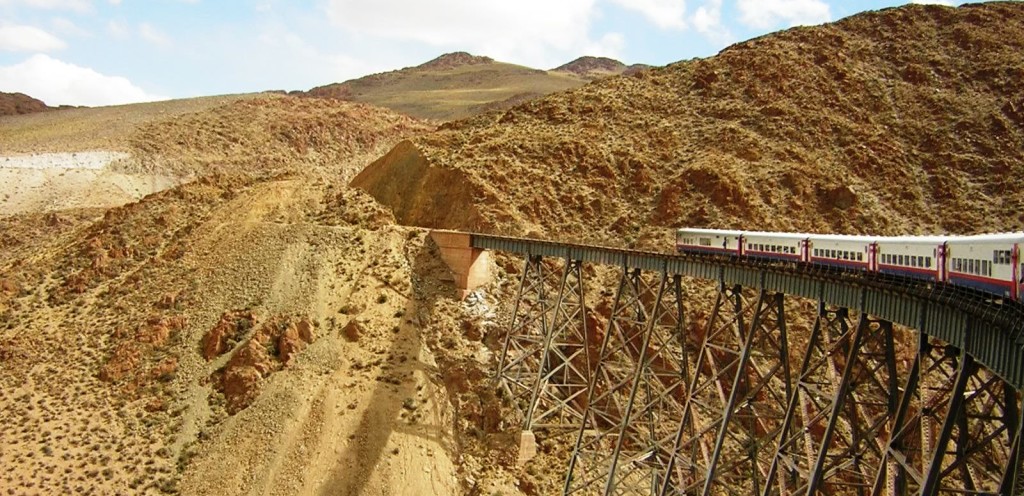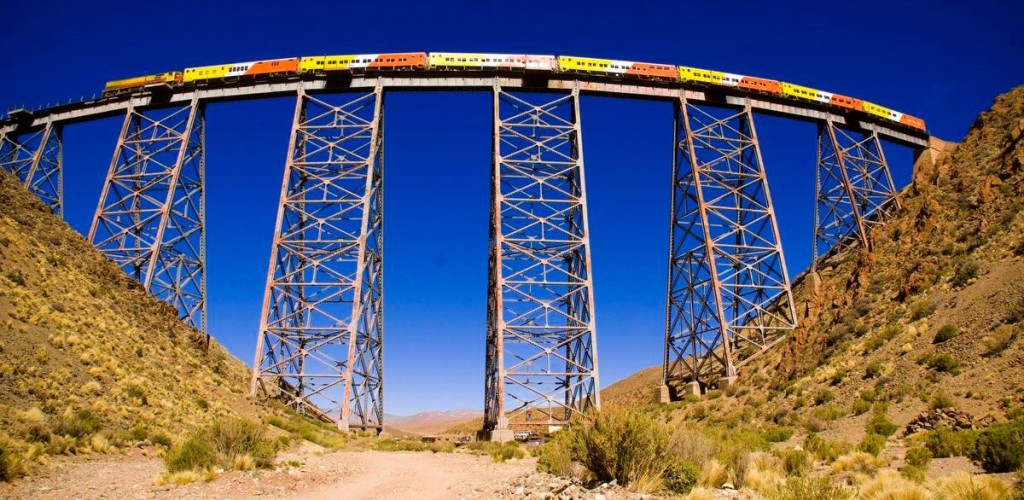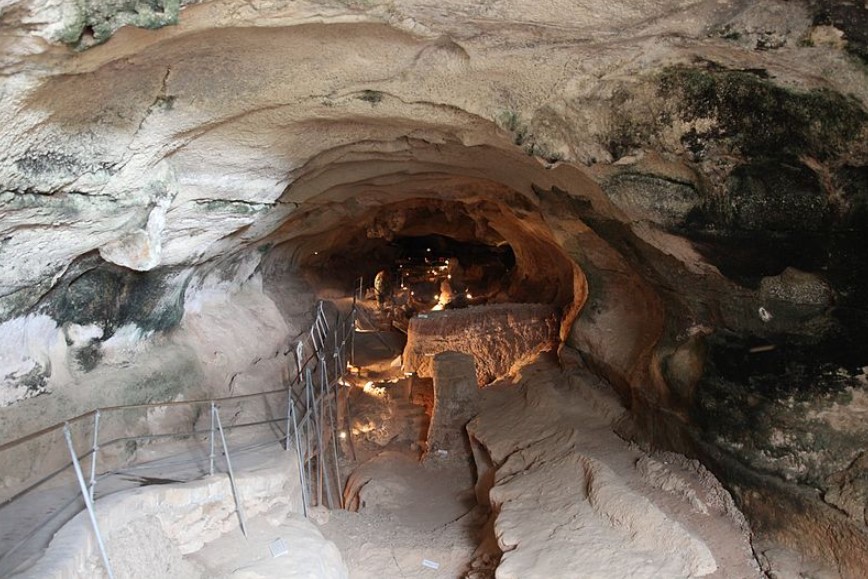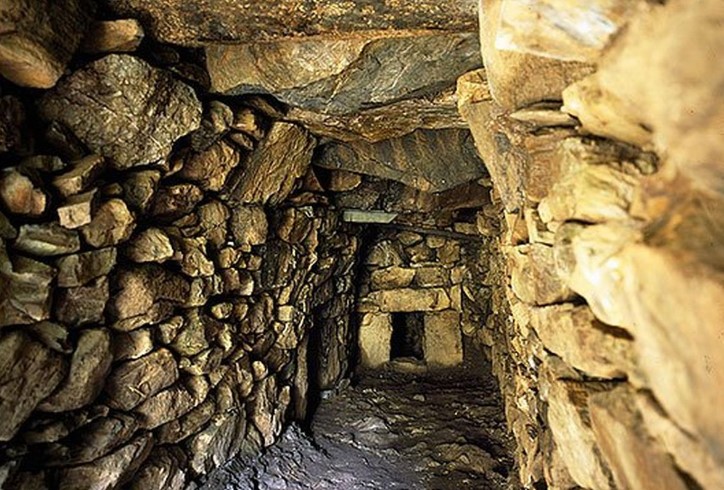Tren a las Nubes or Trains to Clouds is located 4,000 meters above sea level in the Andes. Its name Train to The Clouds derives from the several clouds that are often seen under bridges and around slopes. The train starts its journey from the City of Salta in Argentina, at an altitude of 1187 meters, passes through the Valle de Lerma, which enters the Quebrada del Toro, and finally finishes its journey at the La Polvorilla viaduct ( Almost 4,200 meters).
The train’s official name is Ferrocarril Belgrano and it reached the highest peak at the final stage of La Polvorilla Viaduct bridge which is 70 m over a river bank, a little after the stop at the charming town of San Antonio de Los Cobres, where time seems to have stopped. Train to clouds is one of the highest railways in the world.
The journey is calculated approximately 16 hour’s trip, and the train travels 217 Kilometers and climbs a staggering 3,000 meters. The beautiful journey train crosses 29 bridges, 12 viaducts, 21 tunnels, swoops round two massive loops, and two switchbacks. On its way, it crosses a road that takes to the clouds, with plenty of time to relish a very different and changing unforgettable cultural and landscaping experience.
American engineer Richard Fontaine Maury laid down the route, who was actually leading the project. He designed a singular system well supported by bridges, viaducts, tunnels, spirals, and zigzags. The gorgeous zigzags permit the train to climb the mountain by driving back and forth parallel to the slope of the mountain.
Richard didn’t use funiculars or cogwheels that are usually used on steep slopes, in its place relying on switchbacks to gain height. The purpose behind the construction of “Train to the Clouds” was originally to serve the borax mines of the area, mainly transporting goods from the coast of Chile through the Andes Mountains to northwestern Argentina.
Trains to Clouds get noticed by tourists in the 1970s. The train usually leaves early in the morning from Salta city, passes Lerma Valley, then Toro Ravine, to end with the big territory of the Puna. The train normally takes only two stops, almost at the end of the trip.
The first one is at San Antonio de Los Cobres, an old town with low-built houses and a tiny market. At this place, tourists can take picturesque stalls giving handicrafts, items of clothing, and souvenirs to take home from the train trip. However, the 2nd stop is much more spectacular (The End of the Route) is the La Polvorilla viaduct. The curved viaduct is 224 meters long and 70 meters high from the valley.
The train beautifully glides across the viaduct and stops before reversing back, poised for the return journey. Upon the final destination, travelers can get off the train, feel the pure and cold air on their faces, and walk slowly in order to get their bodies used to the altitude and take memorable pictures. The trip back to Salta is completed in the dark and reaches Salta just before midnight.
The journey takes a whole day. The train has a dinning-car, medical services, audio, video, and bilingual guides. There is also the possibility of returning by bus, in which case it is possible to spend more time at San Antonio de Los Cobres and pay a visit to the little village of Santa Rosa de Tastil. The whole roundtrip covers 269 miles, at an average speed of 21 miles per hour.
Related Reading – The Brusio Spiral Viaduct in Switzerland



